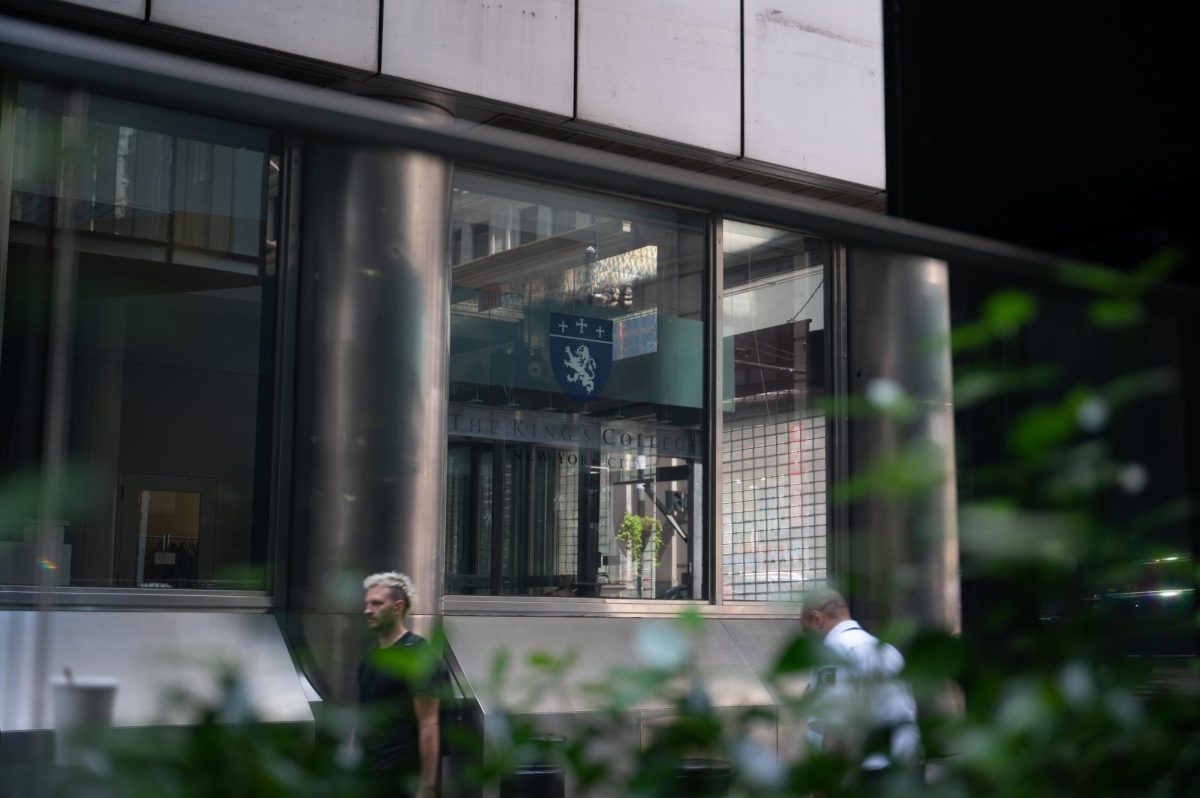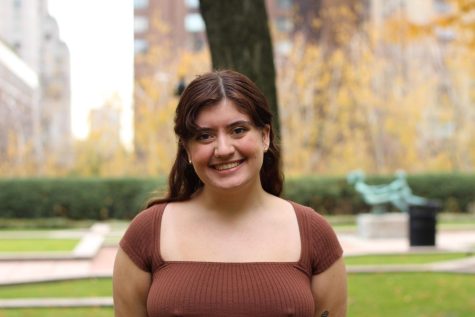Every year, school administrators across the country greet incoming first-years with the signature phrase “over the next four years,” as the fabric of an American collegiate education is structured around the idea of a four year program. While transfers and other nontraditional paths are inevitable, the idea of institutional closure is unthinkable to most students.
For students at The King’s College (TKC), an evangelical liberal arts college in New York City’s Financial District, that reality changed when the board of trustees announced that it would not hold classes for the fall 2023 semester in an email sent to its university community on July 17. The email attributed this decision to an inability to meet its financial needs and the consequent loss of accreditation. The temporary closure led 28 of TKC’s approximately 300 enrolled undergraduates at the time to transfer to Fordham.
Three of the 28 students chose to enroll at Fordham in the traditional day program, according to José Olivares, associate director of transfer admissions. An additional 25 students enrolled in Fordham’s School of Professional and Continuing Studies (PCS), making up 7.4% of the incoming cohort, for the fall semester, and three deferred to the spring semester.
“I figured even if all this works out for King’s, I’m out of here, basically,”Mandie-Beth Chau, FCLC ’25
Olivares noted that many students from TKC chose PCS over the day program “due to their more generous transfer credit policy and their tuition structure.”
Mindy Huspen, PCS ’24, initiated the transfer application process in May, but did not officially enroll in Fordham until TKC announced its decision to not hold classes in the fall 2023 semester. She shared that she was “waiting on King’s” and ultimately chose to enroll in Fordham’s PCS due to its transfer policy and convenient location.
“I had too many credits to transfer to any other school without losing a year’s worth of work, but not enough credits to qualify for King’s’ accelerated teach out program where I would be able to get my diploma in August,” Huspen explained. “Fordham’s School of Professional and Continuing Studies offered accepting up to 90 credits … and it allowed me to stay in New York City where I already had roots.”
Mandie-Beth Chau, Fordham College at Lincoln Center ’25 and a transfer student from TKC, said that she began the transfer process in February rather than waiting to see if the school would remain open.
“I figured even if all this works out for King’s, I’m out of here, basically,” she explained.
Chau added that she wanted to transfer initially and also expressed that Fordham’s Manhattan campus was a primary reason for her decision to pursue the transfer process. While in high school, Chau had already considered New York University and Fordham, so her enrollment at Fordham seemed like the right choice.
Huspen, who served as the managing editor of TKC’s student-run newspaper, the Empire Star Tribune, took notice of the college’s turmoil back in November 2022 when she wrote an article about the college’s plans to decrease its student enrollment, cut back course offerings and downsize its physical location.
According to Huspen, despite covering what the college had called “strategic rightsizing,” she had not anticipated the college’s closure.
“It was mostly because we didn’t know a whole lot at the time,” she said. “It wasn’t until the spring semester — January, February — where we were alerted as to how dire the financial situation of The King’s College was.”
According to Inside Higher Ed, TKC needed $2.6 million to carry out the rest of the 2022-23 academic year in January, and its business efforts and decisions were unable to keep the college afloat. The email sent on July 17 was signed by the board of trustees as a collective and explained that the university will seek “strategic alliance opportunities” in an effort to reopen down the line.
“We emphasize that this is not a decision to close The King’s College permanently,” the email explained. “The Board of Trustees and senior administration will continue to navigate the College’s next steps and contend for King’s future over the coming months.”
The college had largely relied on donations from wealthy, often conservative, donors such as Richard and Helen DeVos, parents-in-law of former U.S. Education Secretary Betsy DeVos who served under former U.S. President Donald Trump. Recent years, however, brought financial hardship because of several factors, including the deaths of major donors (the DeVoses died in 2018 and 2017, respectively) and the economic ramifications of the pandemic.
In order to combat the financial hardship of the pandemic, TKC ventured into for-profit, online education through a partnership with Primacorp Ventures in 2021, an independent firm founded by Peter Chung in 1995 with a focus on providing private education.
“It wasn’t until the spring semester — January, February — where we were alerted as to how dire the financial situation of The King’s College was.”Mindy Huspen, PCS ’24
The company partnered with the college to create online, for-profit courses for King’s students. According to Inside Higher Ed, Chung promised enrollment of between 6 and 10 thousand students — a goal which a former official at Primacorp was quoted as saying was not realistic.
In addition to setting unrealistic expectations, the financial agreement between the two parties was unbalanced, with Primacorp taking 95% of the revenue and The King’s College keeping just 5%, according to Inside Higher Ed.
Chung, a wealthy Canadian businessman, had donated $2 million to the college after it was unsuccessful in its “immediate” fundraising campaign. Inside Higher Ed reported that The King’s College was only able to raise $178,000 in its campaigning efforts to reach $2.6 million so that it can maintain itself for the rest of the academic year from January.
“I’m very grateful for the opportunity that Fordham’s PCS program gave to us King’s students to continue pursuing our education in the city that we’ve grown to love,” huspen cite
“The Inside Story of The King’s College Death Spiral of 2023,” outlined the college’s history and complex financial entanglements. The Tribune reported that Chung and Primacorp had also violated its partnership with TKC by appointing new members of the college’s board. Neither Chung, Primacorp nor the King’s College responded to Inside Higher Ed’s requests for comment.
The partnership ultimately failed to achieve the college’s financial and enrollment goals. In the summer of 2022, DeVos Hall, the college’s student residence hall named after TKC’s donors, was listed for sale, three years after its opening. That fall, faculty layoffs followed, and throughout the spring, faculty and administrators began preparing students to transfer when the college announced a temporary closure. For Chau, the college’s financial troubles seemed irreconcilable.
“I’m more cynical than the average King’s student was,” she said. “We just kind of had an idea that things were headed this way in November of 2022, when the board and interim president announced that they were ‘rightsizing,’ which just means downsizing.”
Despite the tumultuous nature of their transfer experiences to Fordham, both Huspen and Chau positively described their experiences at Fordham thus far.
“I just feel like Fordham has a lot more resources,” Chau said. “Fordham is a better fit for me … and I feel supported just because I think Fordham is a better situation in general.”
Huspen echoed a similar sentiment to Chau, adding that the Fordham administration, admissions, registration and the Fordham PCS team made the transition as smooth as possible.
“I’m very grateful for the opportunity that Fordham’s PCS program gave to us King’s students to continue pursuing our education in the city that we’ve grown to love,” Huspen said.
CORRECTION: A previous version of this article stated that Richard and Helen DeVos died in 2018 and 2019, respectively. As of Sept. 18, this article has been updated to reflect that Helen DeVos died in 2017, rather than in 2019.


